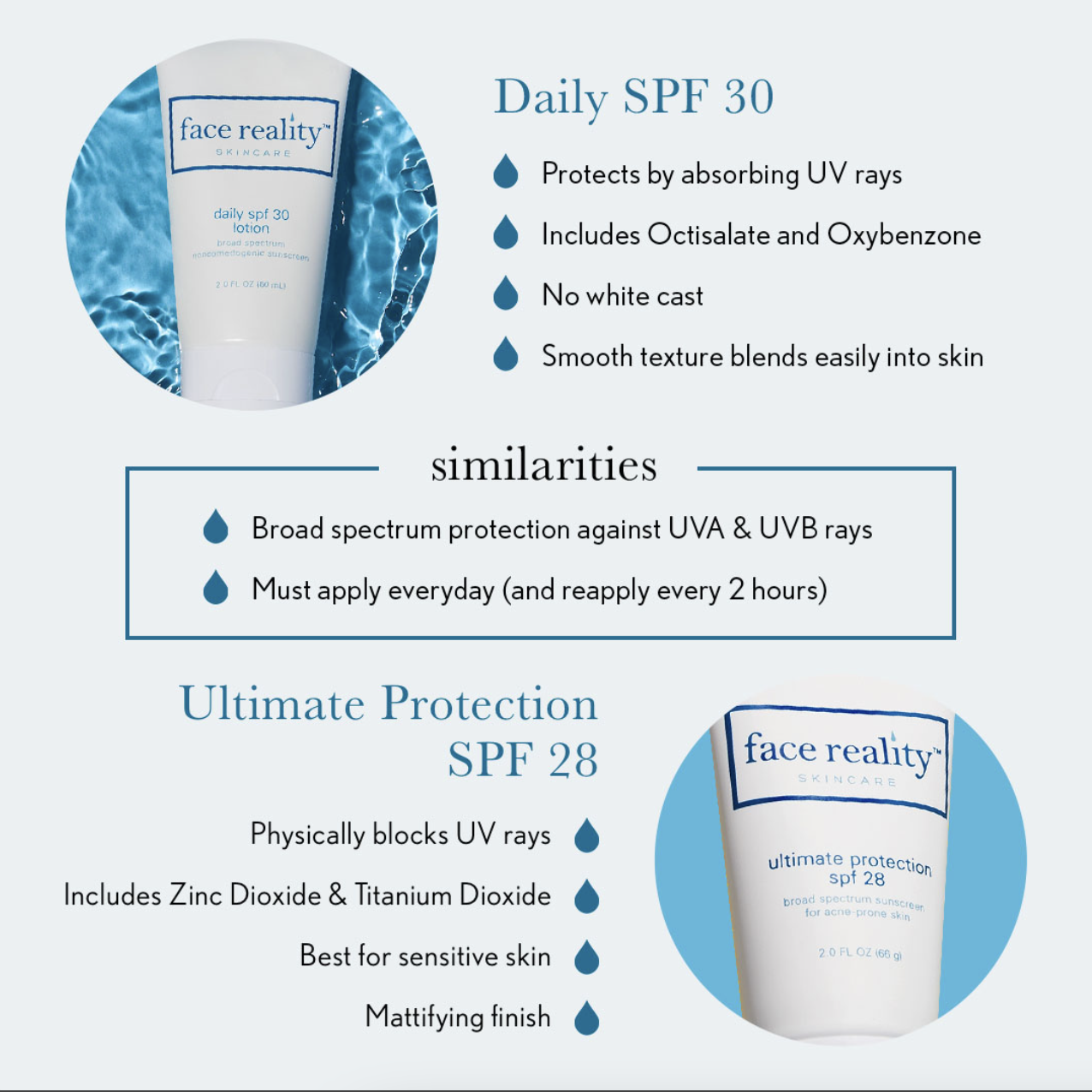Mineral vs. chemical spf
“You can think of mineral sunscreen as a million tiny mirrors sitting on the surface of your skin, reflecting the sun's harmful rays away, while chemical sunscreen is more like a sponge, absorbing the sun's rays and then deactivating them so they cannot cause damage.”
Mineral vs. chemical sunscreen — what’s the difference?
The best SPF is one you’ll wear every day!!! It is the most important part of your skin care routine, and it’ll have the greatest impact on your complexion in the long run. Sun damage shows up over time so don’t wait until it’s too late to start correcting it!
How can you differentiate a mineral sunscreen from a chemical one?
Not every sunscreen will be clearly labeled as “mineral” or “chemical.” If you recognize the ingredients, such as zinc and titanium, it’s a mineral sunscreen. If you see ingredients you’re less familiar with, such as octinoxate, it’s a chemical sunscreen.
Both mineral and chemical sunscreens protect your skin. The difference is in how they protect your skin!
Mineral sunscreen
Mineral sunscreen (also called physical sunscreen) acts as a physical barrier between the sun and your skin. It reflects UV rays away from the skin’s surface to prevent burns and sun damage. I recommend sticking to mineral sunscreens if you have acne-prone or sensitive skin.
My favorite mineral sunscreens:
Face Reality SPF28
Skinbetter Tone Smart
Chemical sunscreen
The name “chemical” may sound a little intense, but there’s nothing scary about chemical sunscreen! Instead of reflecting light away from the skin, chemical sunscreen works by converting that light to heat through a chemical reaction. This isn’t toxic or harmful to your body — it’s just a different way to create a protective barrier for your skin.
My favorite chemical sunscreens:
Face Reality SPF30
